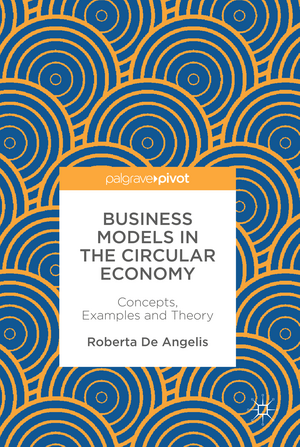Business Models in the Circular Economy: Concepts, Examples and Theory
Autor Roberta De Angelisen Limba Engleză Hardback – 20 feb 2018
Preț: 483.33 lei
Nou
Puncte Express: 725
Preț estimativ în valută:
92.50€ • 95.55$ • 76.98£
92.50€ • 95.55$ • 76.98£
Carte tipărită la comandă
Livrare economică 26 martie-09 aprilie
Preluare comenzi: 021 569.72.76
Specificații
ISBN-13: 9783319751269
ISBN-10: 3319751263
Pagini: 83
Ilustrații: XIX, 112 p. 2 illus.
Dimensiuni: 148 x 210 x 15 mm
Greutate: 0.31 kg
Ediția:1st ed. 2018
Editura: Springer International Publishing
Colecția Palgrave Pivot
Locul publicării:Cham, Switzerland
ISBN-10: 3319751263
Pagini: 83
Ilustrații: XIX, 112 p. 2 illus.
Dimensiuni: 148 x 210 x 15 mm
Greutate: 0.31 kg
Ediția:1st ed. 2018
Editura: Springer International Publishing
Colecția Palgrave Pivot
Locul publicării:Cham, Switzerland
Cuprins
1 Introduction.- 2 Sustainable Development, Corporate Environmental Sustainability and the Circular Economy.- 3 Business Models and Circular Business Models.- 4 Circular Business Models: Some Theoretical Insights.- 5 Concluding Remarks.
Notă biografică
Roberta De Angelis is a post-doctoral research fellow at the University of Exeter, UK. She holds a PhD in Management Studies and is Associate Fellow of the Higher Education Academy.
Textul de pe ultima copertă
This book focuses on the role of corporations in the transition towards an economy that works more in line with ecological limits. It is centred on business model innovation in the context of the circular economy, which is gaining consensus across business, policy and academic circles by proposing more resource efficient industrial processes. Interest in circular business models is growing within academic and practitioner literature yet the concept is not clearly understood, with potential negative consequences for theory building and practical implementation. Therefore, this book conceptualises circular business models and investigates their theoretical foundations in relation to the rationale for adopting them, drawing on circular economy, business model, strategic management and neo-institutional literature and secondary data.
Caracteristici
Clarifies circular economy literature by conceptualising circular business models Explains theoretically the rationale for adopting circular business models Invigorates the limited discussion within Management Studies on the circular economy
